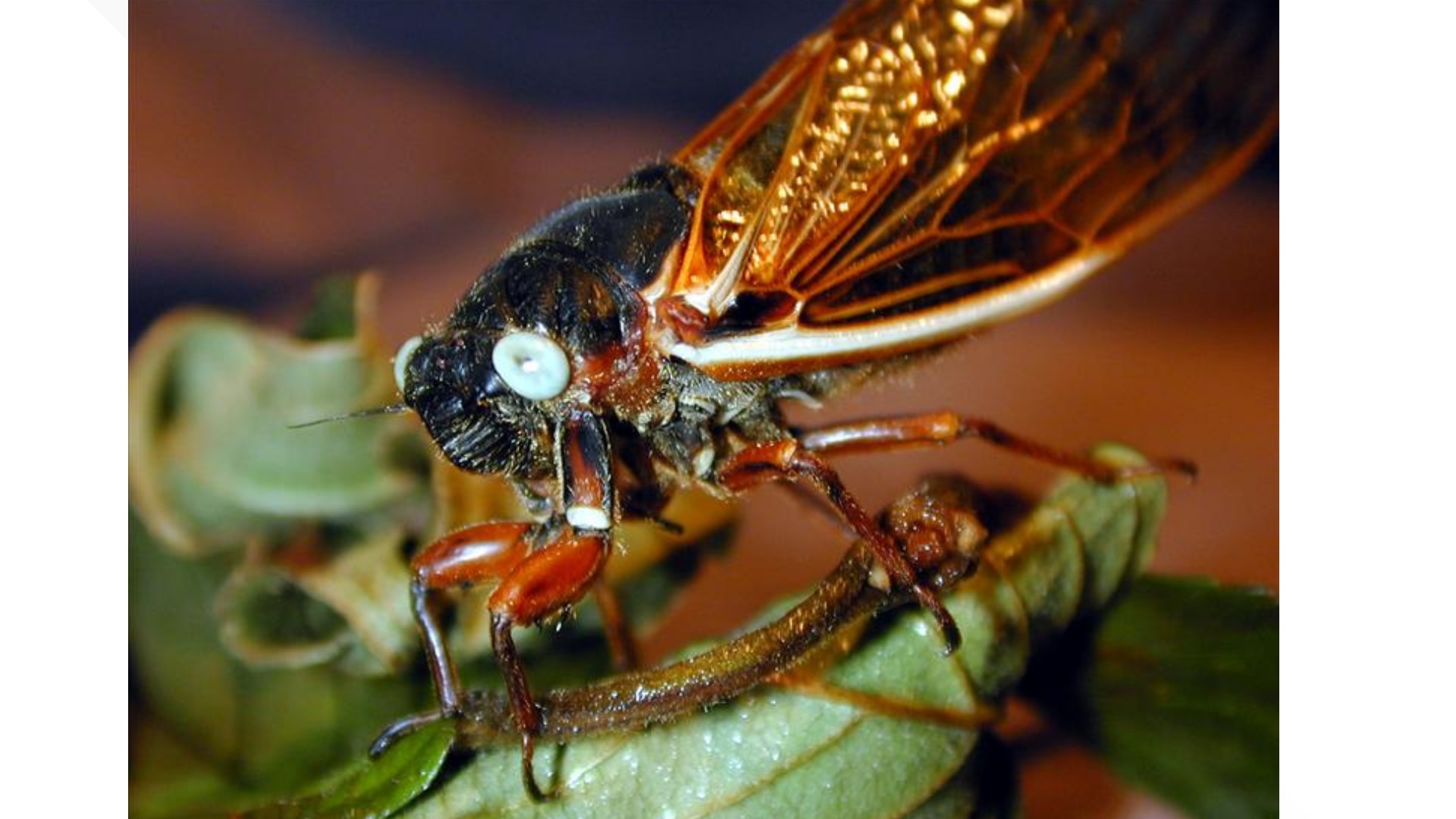WASHINGTON — Very soon, billions of cicadas will emerge from the ground in parts of the mid-Atlantic after spending 17 years hanging out below our feet. When they sense the ground temperature reach 64° F, they'll dig their way up to the surface to mate and scream for a few weeks. In fact, some have already been spotted.
Most Brood X cicadas have bright red eyes. But, in some rare cases, you might spot the rare blue or white-eyed cicada. Whenever a new brood emerges, so does this claim: that those blue eyes are so rare, you can make money by finding one.
Before calling up your local entomologist asking for cash, Verify brought them that claim to get the facts.
THE QUESTION
Could you get paid $1,000 for finding a rare blue-eyed cicada?
THE SOURCES
- Dr. Paula Shrewsbury, Professor in the Department of Entomology at the University of Maryland
- Dr. Zoe Getman-Pickering, a Postdoctoral Scientist with The George Washington University
THE ANSWER
The claim is based on an old urban legend.
WHAT WE FOUND
Cicadas with blue eyes are rare. Dr. Zoe Getman-Pickering said she doesn't know exactly how rare they are, but that they are rarer than humans with blue eyes.
"There are some variations, sometimes you'll see a whiteish-blue," Dr. Paula Shrewsbury explained to WUSA9 Meteorologist Chester Lampkin. "Most of them have red, it's just natural mutations that they have different colors."
RELATED: VERIFY: Brood X is coming. Here's what the cicadas look like now, and your top questions answered
As for whether spotting those rare blue-eyed beauties can get you some cash, our experts say that is untrue.
"There is an urban myth, or urban legend, that if you find a cicada with blue eyes, that you can get $1,000," Dr. Shrewsbury said. "But that's not true."
Dr. Getman-Pickering said the same thing. There's no cash prize on the way.
"If folks do find them, they can take a picture and share it on social media and share it through the Cicada Safari app," Dr. Getman-Pickering told the Verify team via email. "I don't believe they are collecting data on eye mutations specifically, but I am sure they would love to have that info."













